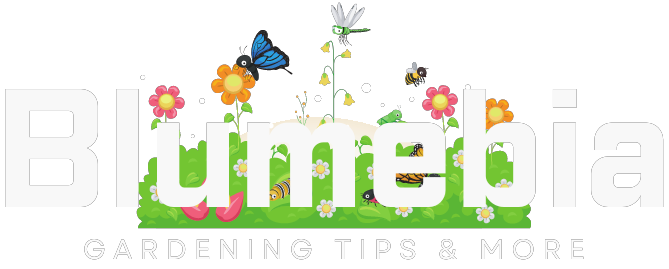Are you tired of using harsh chemicals to control pests in your garden? Are you looking for a more natural approach to protect your plants? Organic pest control strategies may be the solution you’ve been searching for. By using natural methods, you can effectively prevent and control garden pests without harming the environment or risking the health of your family and pets.
Organic pest control involves using natural predators, physical barriers, and organic pesticides to control pests. This approach is based on the principle of creating a healthy and balanced ecosystem in your garden. By encouraging beneficial insects and minimizing the use of harmful chemicals, you can create a sustainable and thriving garden that is less susceptible to pest damage.
In this article, we will discuss various organic pest control strategies that you can use to protect your garden from pests. We will explore natural methods such as companion planting, crop rotation, and using organic pesticides. By the end of this article, you will have a better understanding of how to prevent and control garden pests naturally, without relying on harsh chemicals.
Understanding Organic Pest Control
Definition and Principles
Organic pest control refers to the use of natural methods to prevent and control garden pests without the use of synthetic chemicals. The principles of organic pest control are based on the idea of building a healthy ecosystem in the garden that is resistant to pests and diseases. This involves creating a balance between the different organisms in the garden, including beneficial insects, microbes, and plants.
The goal of organic pest control is not to eliminate all pests, but rather to manage them in a way that minimizes damage to the garden while preserving the health of the soil and the environment. Organic pest control methods focus on prevention rather than cure, and aim to address the root causes of pest problems rather than just treating the symptoms.
Benefits of Organic Methods
There are several benefits to using organic pest control methods in your garden. First and foremost, organic methods are safer for the environment and for your health. Synthetic pesticides can be harmful to beneficial insects, birds, and other wildlife, and can also contaminate soil and water sources.
Organic methods are also more sustainable in the long term. By building a healthy ecosystem in your garden, you can create a self-sustaining system that is less reliant on external inputs like fertilizers and pesticides. This can save you time and money in the long run, while also reducing your environmental impact.
Another benefit of organic pest control is that it can improve the quality of your produce. By avoiding synthetic chemicals, you can ensure that your fruits and vegetables are free from harmful residues and are safe to eat.
Overall, organic pest control is a natural and effective way to manage pests in your garden. By understanding the principles of organic pest control and using natural methods to prevent and control pests, you can create a healthy and sustainable garden that is both productive and beautiful.
Preventative Strategies
To prevent garden pests from damaging your crops, it is essential to implement preventative strategies. By taking proactive measures, you can reduce the likelihood of pests infesting your garden and causing damage. Here are some effective preventative strategies:
Cultural Practices
One of the most effective ways to prevent pests is to maintain healthy soil. Healthy soil is essential for growing healthy plants that can resist pests and diseases. To ensure healthy soil, you should:
- Use compost and other organic matter to enrich the soil
- Rotate crops to prevent the buildup of pests and diseases
- Plant cover crops to improve soil health and prevent erosion
- Practice proper watering and fertilization techniques to avoid stress on plants
Physical Barriers and Traps
Physical barriers and traps can be effective in preventing pests from accessing your crops. Here are some examples:
- Use row covers to protect plants from pests
- Install fences to keep out larger pests like deer and rabbits
- Use sticky traps to catch flying insects like aphids and whiteflies
- Place beer traps to attract and drown slugs and snails
Beneficial Insects and Animals
Beneficial insects and animals can help control pest populations naturally. Here are some examples:
- Attract ladybugs, lacewings, and other predatory insects to control aphids and other pests
- Encourage birds to visit your garden to eat pests like caterpillars and beetles
- Introduce nematodes to control soil-dwelling pests like grubs and cutworms
By implementing these preventative strategies, you can reduce the likelihood of pests infesting your garden and causing damage. Remember to always use natural and organic methods to maintain a healthy and sustainable garden.
Organic Pesticides and Repellents
When it comes to organic pest control, there are several types of natural pesticides and repellents that you can use to protect your garden from pests. These include botanical insecticides, microbial pesticides, and home-made remedies.
Botanical Insecticides
Botanical insecticides are derived from plants and are used to control a wide range of garden pests. They are effective against insects, mites, and other pests, and are considered to be a safer alternative to synthetic pesticides. Some common botanical insecticides include pyrethrum, neem oil, and rotenone.
Pyrethrum is a natural insecticide that is extracted from the flowers of chrysanthemum plants. It is effective against a wide range of pests, including aphids, whiteflies, and spider mites. Neem oil is another natural insecticide that is derived from the seeds of the neem tree. It is effective against a wide range of pests, including aphids, whiteflies, and spider mites. Rotenone is another natural insecticide that is derived from the roots of several plants. It is effective against a wide range of pests, including aphids, whiteflies, and spider mites.
Microbial Pesticides
Microbial pesticides are derived from microorganisms and are used to control a wide range of garden pests. They are effective against insects, mites, and other pests, and are considered to be a safer alternative to synthetic pesticides. Some common microbial pesticides include Bacillus thuringiensis (Bt), Beauveria bassiana, and Metarhizium anisopliae.
Bacillus thuringiensis (Bt) is a natural pesticide that is derived from a soil bacterium. It is effective against a wide range of pests, including caterpillars, beetles, and mosquitoes. Beauveria bassiana is a natural fungus that is effective against a wide range of pests, including aphids, whiteflies, and spider mites. Metarhizium anisopliae is another natural fungus that is effective against a wide range of pests, including aphids, whiteflies, and spider mites.
Home-Made Remedies
Home-made remedies are natural pest control solutions that you can make using ingredients that you have in your home. They are effective against a wide range of pests, and are considered to be a safer and cheaper alternative to synthetic pesticides. Some common home-made remedies include garlic spray, soap spray, and chili pepper spray.
Garlic spray is made by blending garlic cloves with water and straining the mixture. It is effective against a wide range of pests, including aphids, whiteflies, and spider mites. Soap spray is made by mixing liquid soap with water and spraying the mixture on plants. It is effective against a wide range of pests, including aphids, whiteflies, and spider mites. Chili pepper spray is made by blending chili peppers with water and straining the mixture. It is effective against a wide range of pests, including aphids, whiteflies, and spider mites.
Frequently Asked Questions
What natural ingredients can be used to create a homemade pest control solution for garden vegetables?
There are several natural ingredients that can be used to create a homemade pest control solution for garden vegetables. Some of the most effective ingredients include garlic, chili peppers, neem oil, and soap. These ingredients can be mixed with water and sprayed on the plants to deter pests. It is important to note that homemade solutions should be used with caution and tested on a small area before being applied to the entire garden.
How can I effectively manage pests in my vegetable garden using organic methods?
Effective pest management in a vegetable garden requires a combination of prevention and intervention strategies. Prevention strategies include crop rotation, companion planting, and maintaining soil health. Intervention strategies include handpicking pests, using natural predators, and applying organic pest control solutions. It is important to monitor the garden regularly and take action at the first sign of a pest infestation.
Which plants are beneficial for pest control in vegetable gardens?
Several plants are beneficial for pest control in vegetable gardens. These include marigolds, basil, mint, and lavender. These plants contain natural compounds that repel pests and attract beneficial insects. Planting these plants alongside vegetables can help to reduce the need for synthetic pesticides.
What strategies do organic farmers employ to manage insect populations without synthetic chemicals?
Organic farmers employ a variety of strategies to manage insect populations without synthetic chemicals. These include crop rotation, companion planting, maintaining soil health, and using natural predators. Organic farmers also use physical barriers, such as row covers and netting, to protect crops from pests.
How can gardeners naturally deter insects from eating plant leaves?
Gardeners can naturally deter insects from eating plant leaves by using a variety of methods. These include planting companion plants that repel pests, using natural predators, and applying organic pest control solutions. Gardeners can also use physical barriers, such as row covers and netting, to protect plants from pests.
Can you provide examples of successful organic pest control practices?
Successful organic pest control practices include using natural predators, such as ladybugs and praying mantises, to control pests. Companion planting, such as planting marigolds alongside tomatoes, can also be effective. Using organic pest control solutions, such as neem oil and soap sprays, can also help to reduce pest populations. Additionally, maintaining soil health and rotating crops can help to prevent pest infestations in the first place.



